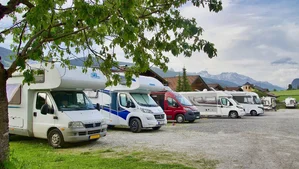Canary Islands Grapple with Demographic and Migration Challenges: Local Solutions Proposed

The Canary Islands, a popular destination for expats and tourists alike, are facing significant demographic and migration challenges that are straining local resources and infrastructure. In response to these issues, local authorities have proposed a series of concrete measures to address the growing concerns.
Demographic Challenges
The Canary Islands, with a population of approximately 2.2 million people, are experiencing a unique set of demographic challenges. The region is grappling with an ageing population, a low birth rate, and an influx of migrants, all of which are impacting the local economy and social services.
Spain's Minister of Inclusion, Social Security and Migration, Elma Saiz, has highlighted the need for foreign workers to support the country's welfare state. Spain requires around 250,000 registered foreign workers annually to maintain its social services, a factor that is driving the government's new policy to grant residency and work permits to around 300,000 undocumented migrants each year from 2025 to 2027[3].
Migration Surge
The migration crisis in the Canary Islands has intensified in 2024, with over 40,000 migrants arriving on the islands since the beginning of the year. This surge is particularly evident on El Hierro, the smallest and southernmost island of the archipelago, which has seen nearly twice as many migrants arrive as its entire population of 11,400. Many of these migrants are fleeing violence and economic instability in countries such as Mali, Senegal, and Morocco[1].
The perilous Atlantic route to the Canaries has claimed numerous lives, with at least 55 migrants found dead off the coast of the islands in early November. Despite these dangers, migrants continue to take this route to avoid heightened patrols near other islands[2].
Local Response and Proposals
In the face of these challenges, local authorities are proposing several measures to manage the demographic and migration issues effectively. Here are some key proposals:
Integration and Support
The Canary Islands government is emphasizing the need for greater financial support to integrate the large number of unaccompanied minors, currently over 5,600, who are in shelters and schools. Vice-President Manuel Dominguez has called for increased funding to cope with the "constant avalanche" of migrants[1].
Legalization of Undocumented Migrants
Spain's new policy to grant residency and work permits to undocumented migrants aims to regularize their status and provide them with legal protections. This move is expected to combat exploitation and abuse, and to integrate these workers into the formal economy[3].
Addressing Root Causes
Experts and officials agree that addressing the root causes of migration, such as poverty and conflict, is crucial to stemming the flow of migrants. Recent visits by Prime Minister Pedro Sánchez to West African nations are part of efforts to address these underlying issues[3].
Community Engagement
Local communities are also playing a vital role in managing the crisis. While some residents have expressed frustration over the strain on local resources, others are advocating for greater support and integration of migrants. The humanitarian imperative to provide care and support remains a central theme in the government's response[1].
Conclusion
The Canary Islands are at the forefront of Europe's migration crisis, and the proposed measures by local authorities aim to balance humanitarian responsibilities with the need for effective migration management. As the region navigates these complex issues, the support of both the Spanish government and the EU will be crucial in ensuring that the islands can provide a safe and welcoming environment for all residents, whether they are long-term expats or recent migrants.
Related Stories

Hermigua Municipality Initiates Public Housing Project with Land Acquisition
Hermigua on La Gomera announces a public tender for land to build public housing, aiming to meet the growing demand for affordable living spaces.

Economic Ways to Heat Your Home This Winter: OCU's Guide for Expats in Spain
OCU shares three cost-effective heating methods for expats in Spain, including optimizing heating systems, using layered insulation, and smart heating schedules, to cut winter bills.

Hostelers in Cantabria Demand Regulation of Tourist Apartments, Campervan Areas, and Street Parties
Hostelers in Cantabria call for regulation of tourist apartments, campervan areas, and street parties to combat unfair competition and ensure a level playing field in the hospitality industry.

New Housing Development Approved in Puerto Naos, La Palma
La Palma's Cabildo approves 21 new homes in Puerto Naos, aiming to boost local housing, economy, and tourism while preserving natural beauty.

Housing Crisis in Santander: Expats and Locals Struggle with Access to Affordable Housing
Santander faces a housing crisis, impacting both locals and expats with soaring prices and limited availability, prompting calls for urgent action.